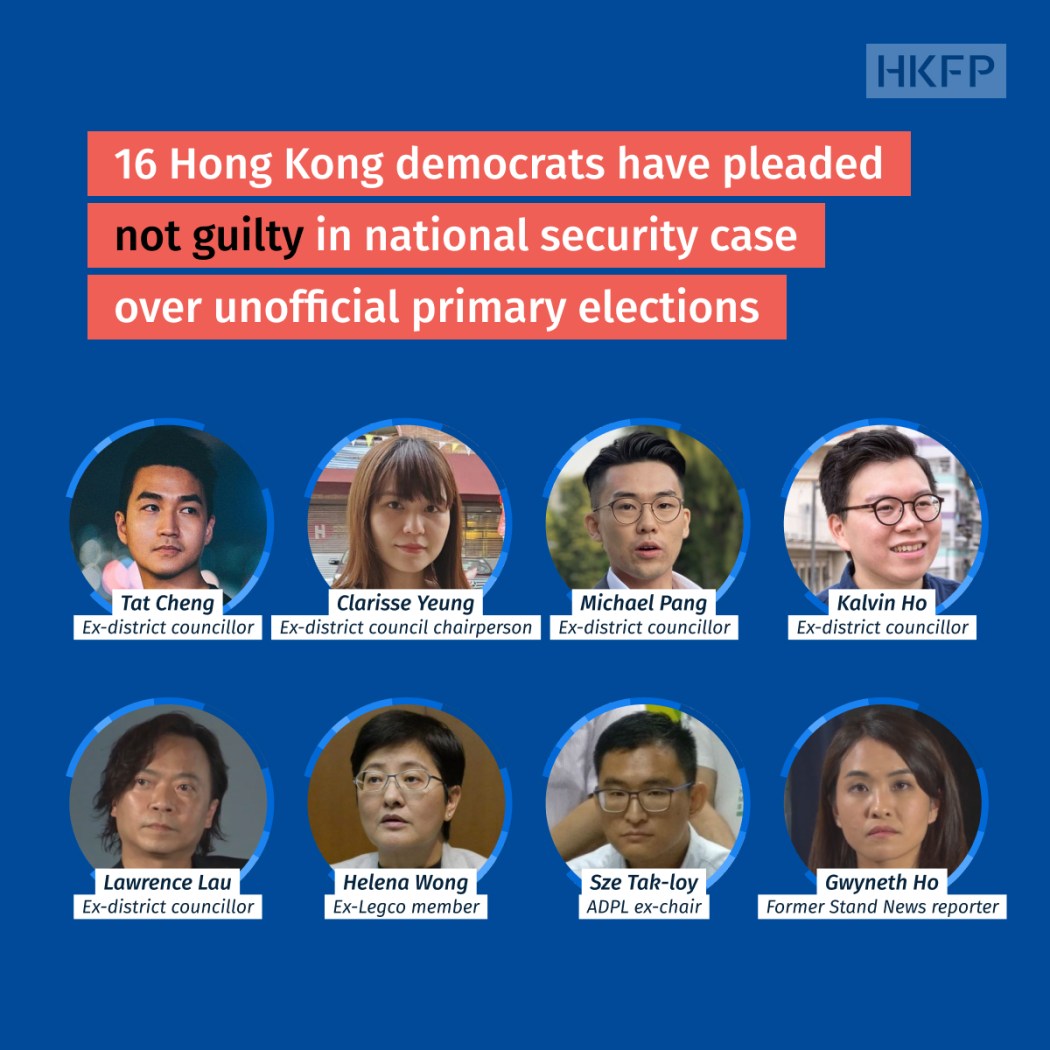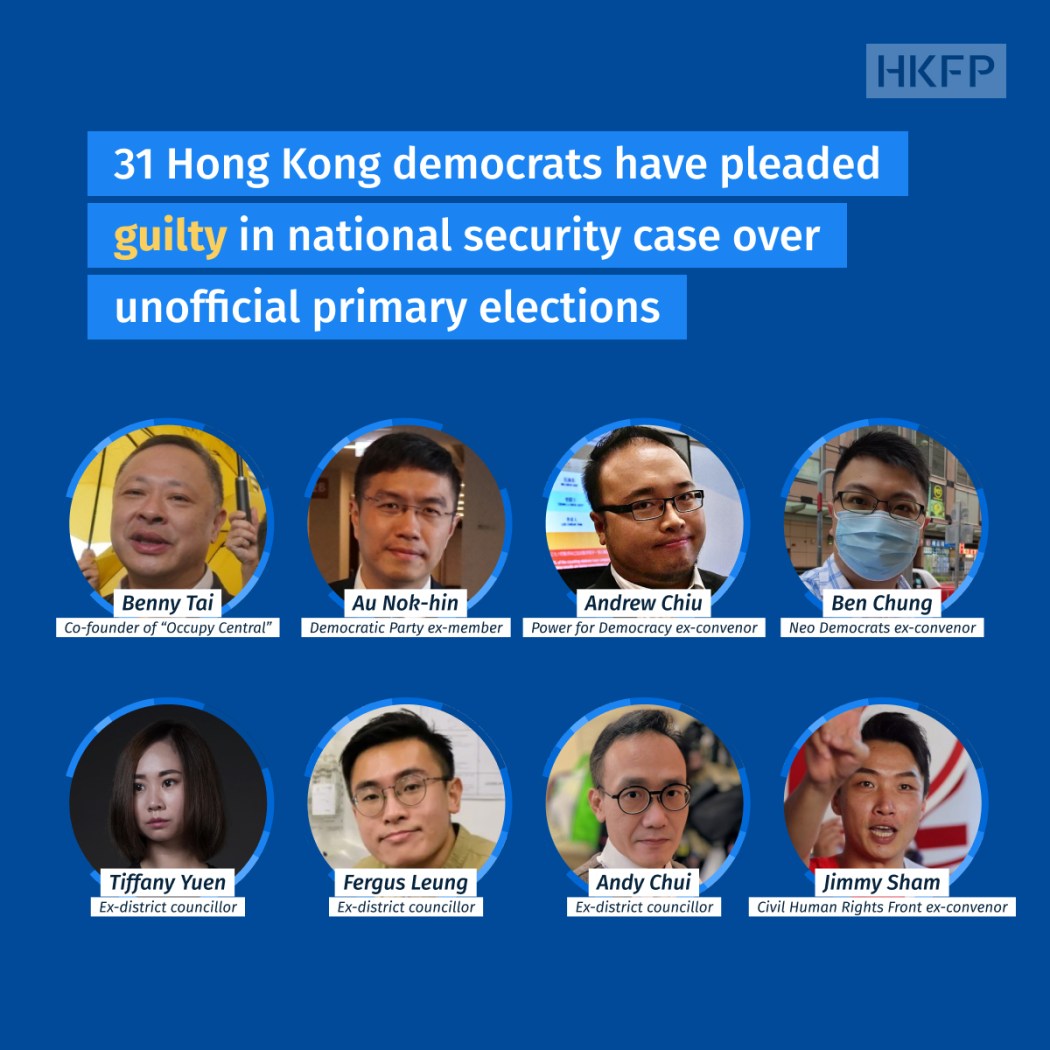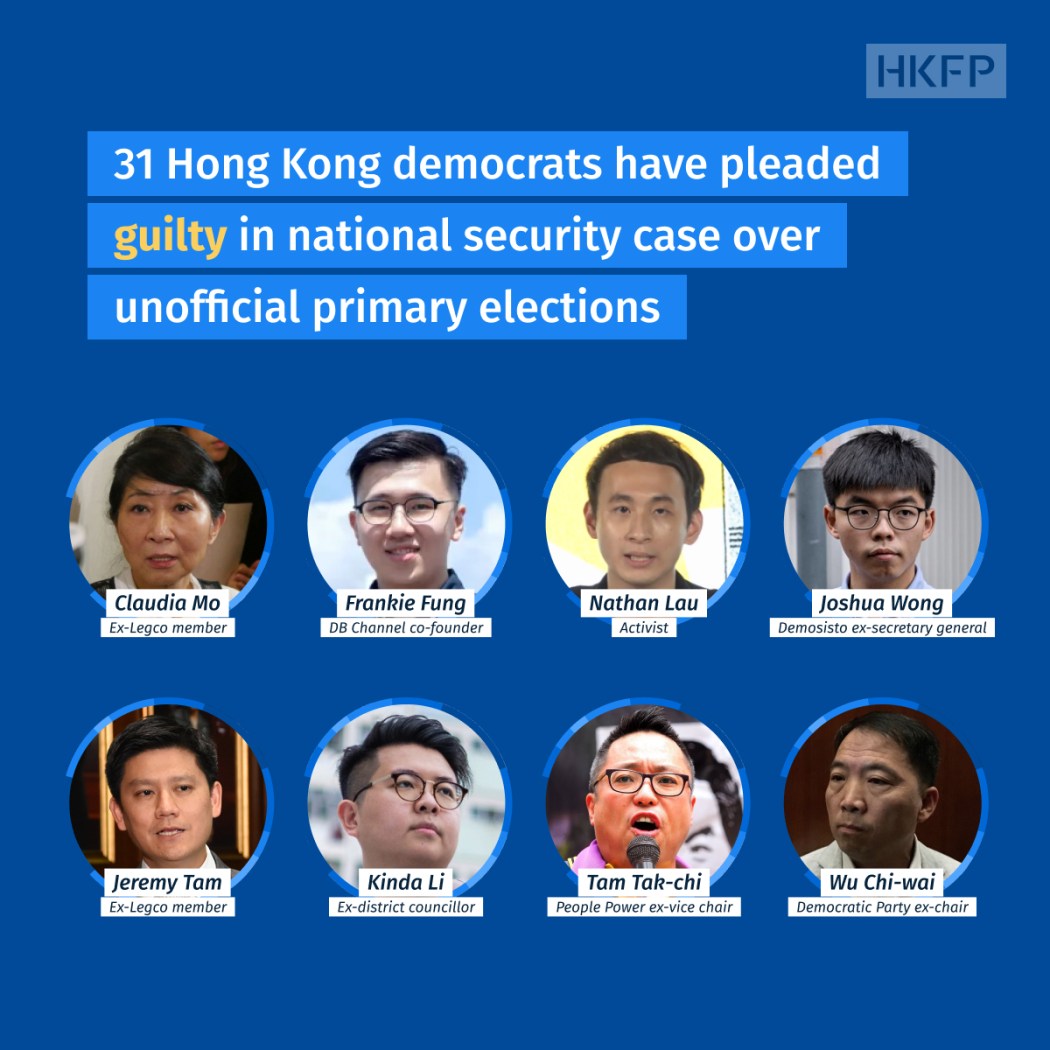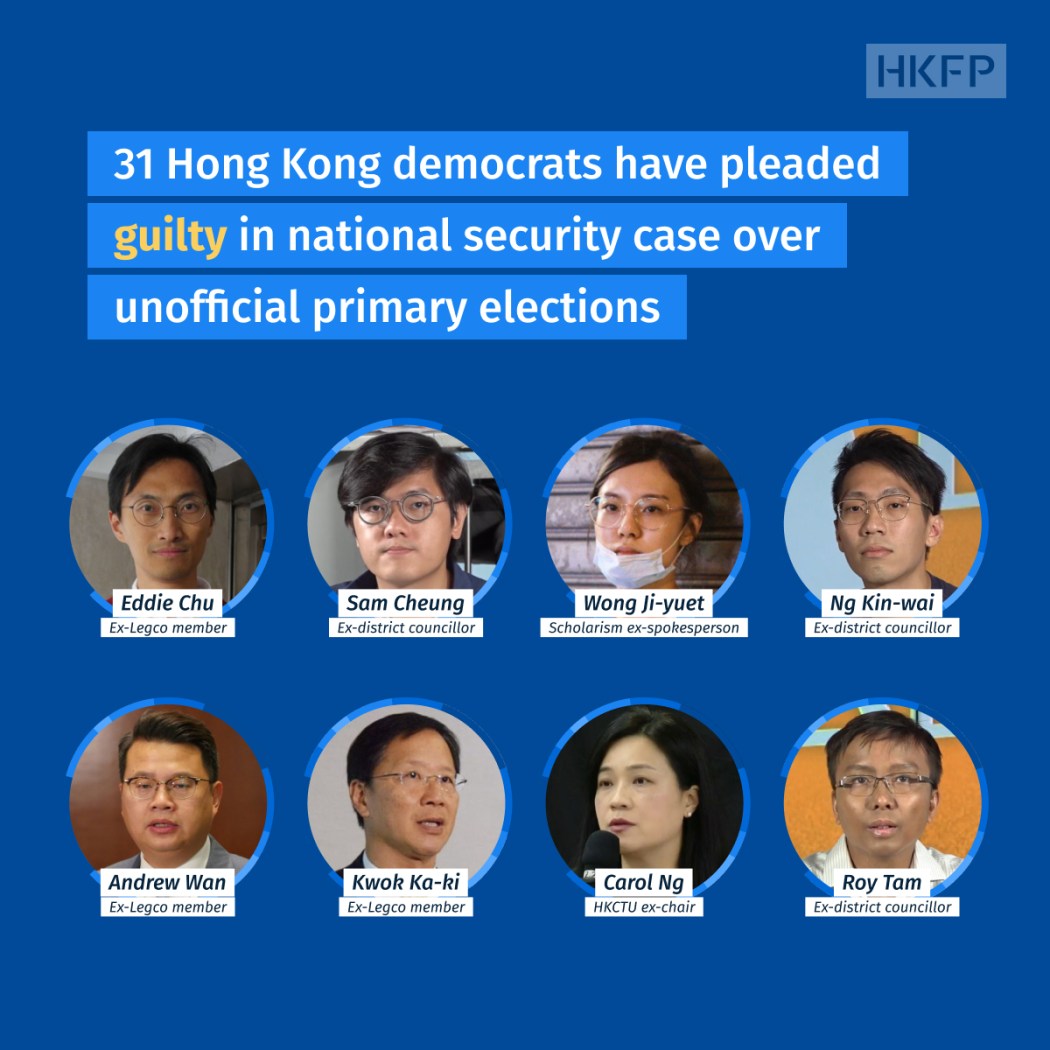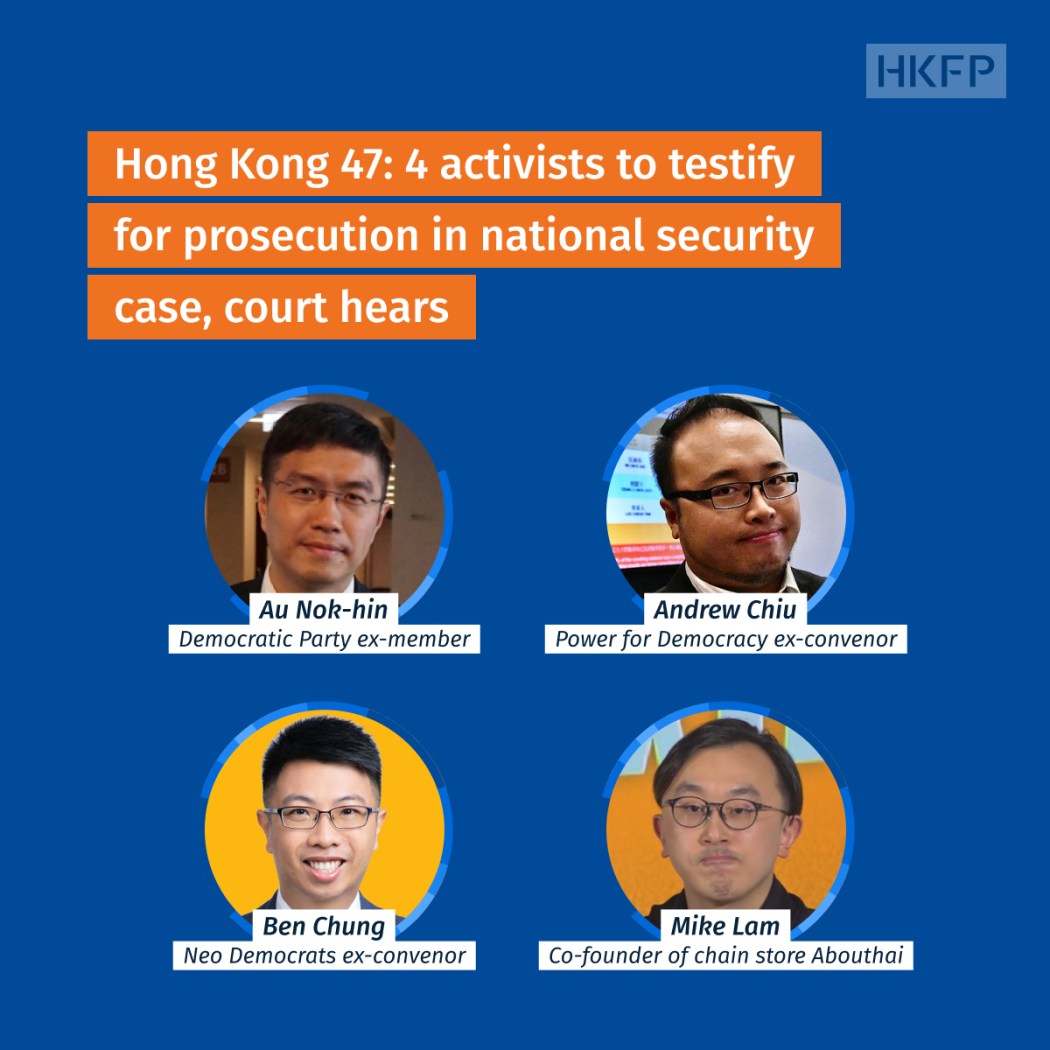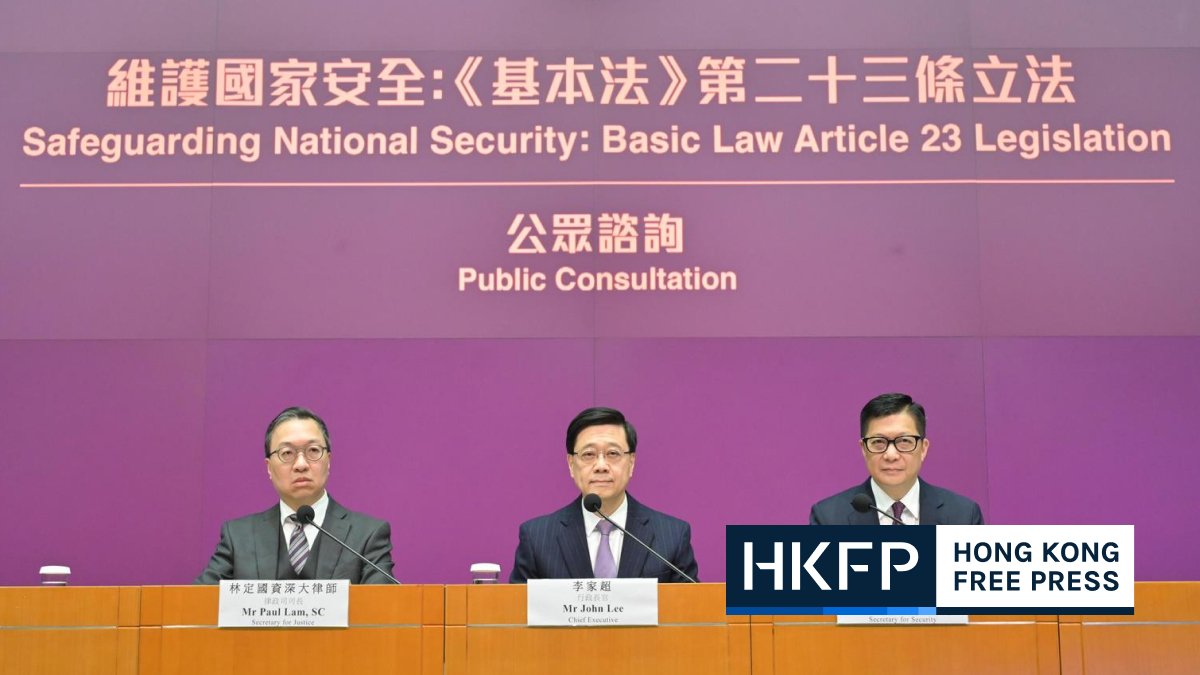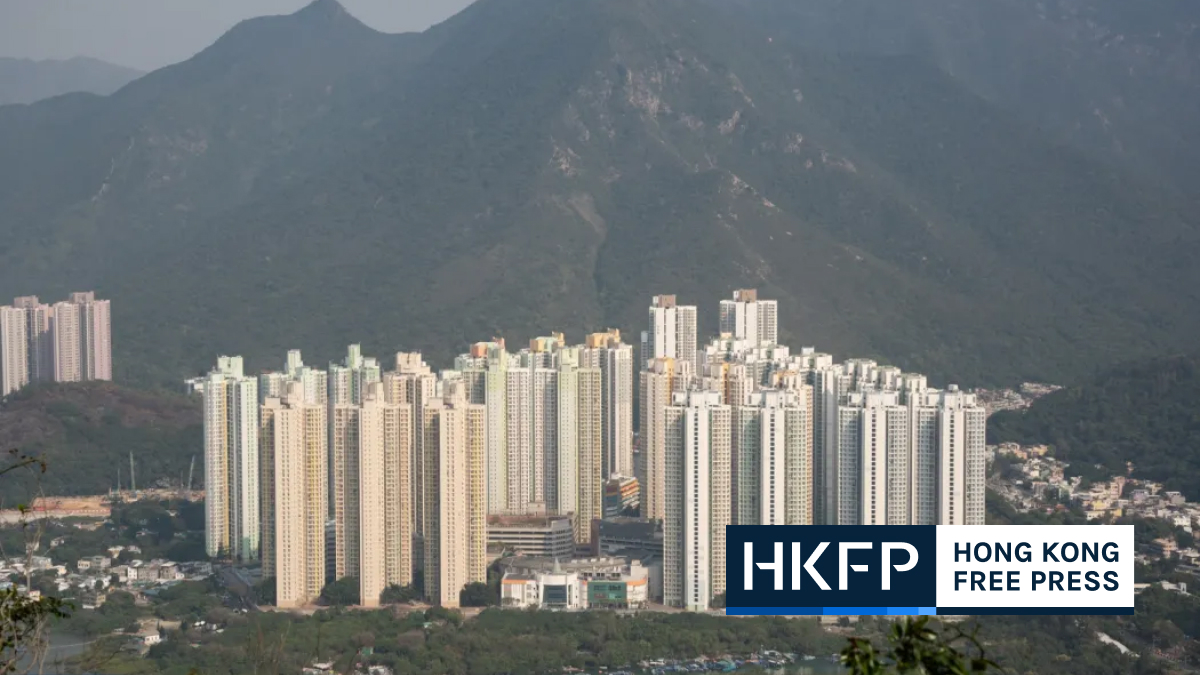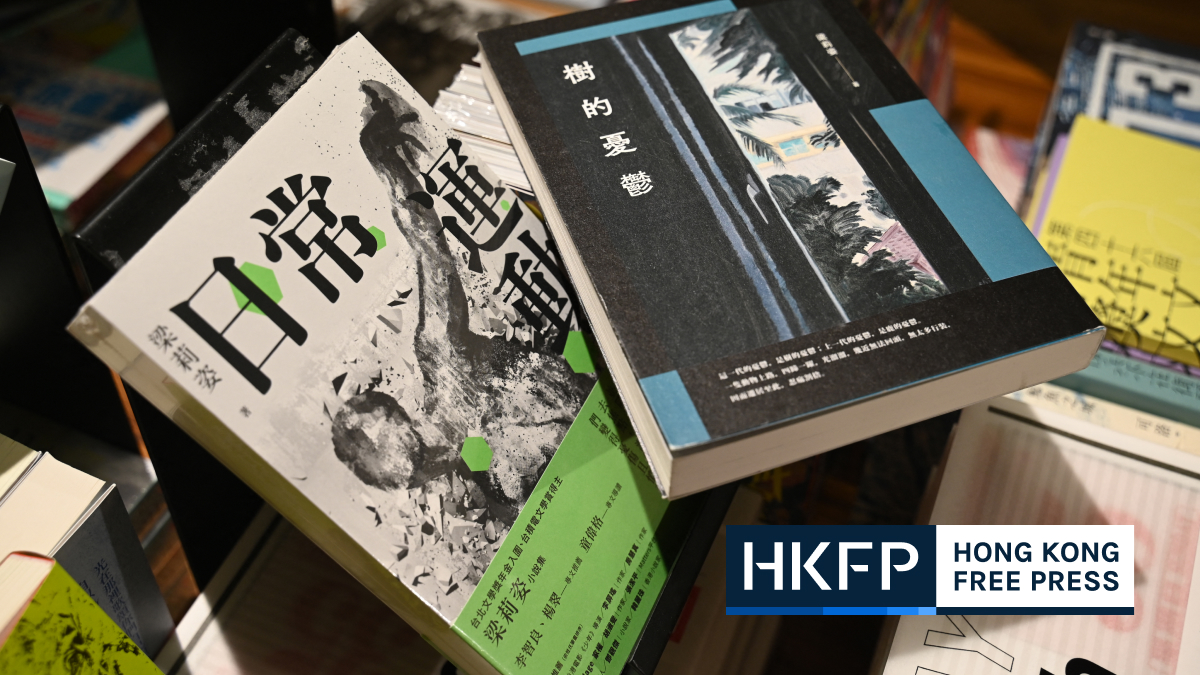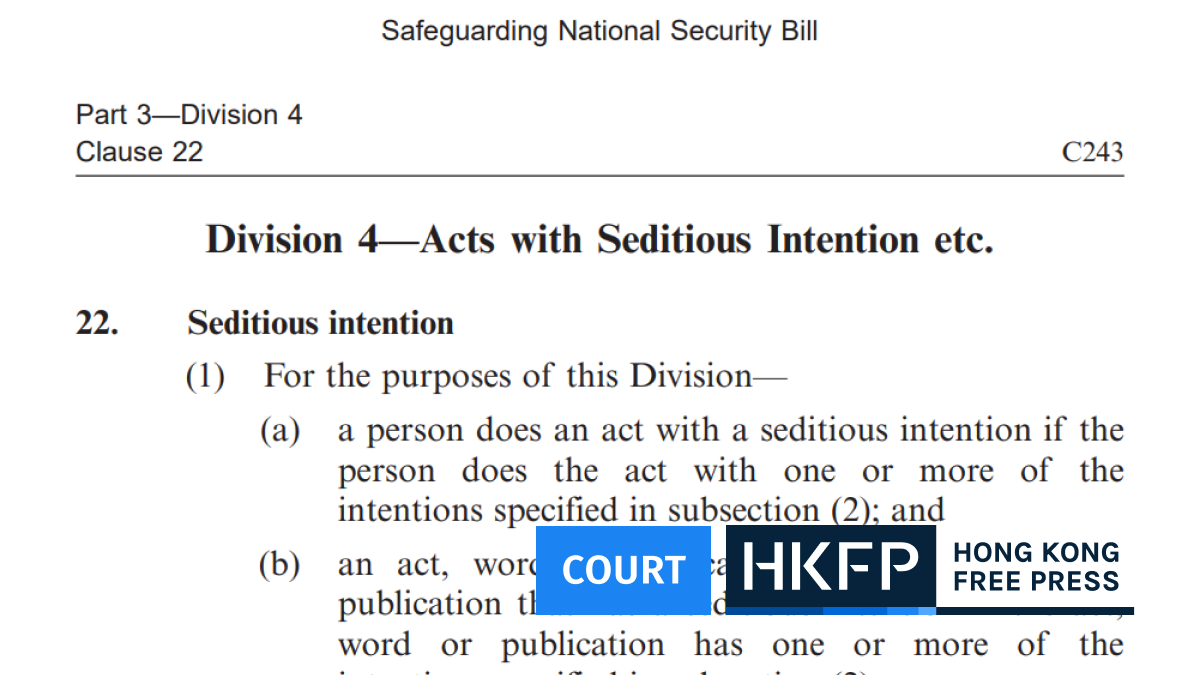Fourteen Hong Kong democrats have been found guilty and two have been cleared of taking part in a conspiracy to commit subversion in a landmark national security trial revolving around their roles in an unofficial primary election in July 2020.
A panel of three designated national security judges delivered its verdicts to the former lawmakers, ex-district councillors and a former journalist at the West Kowloon Law Courts Building on Thursday.
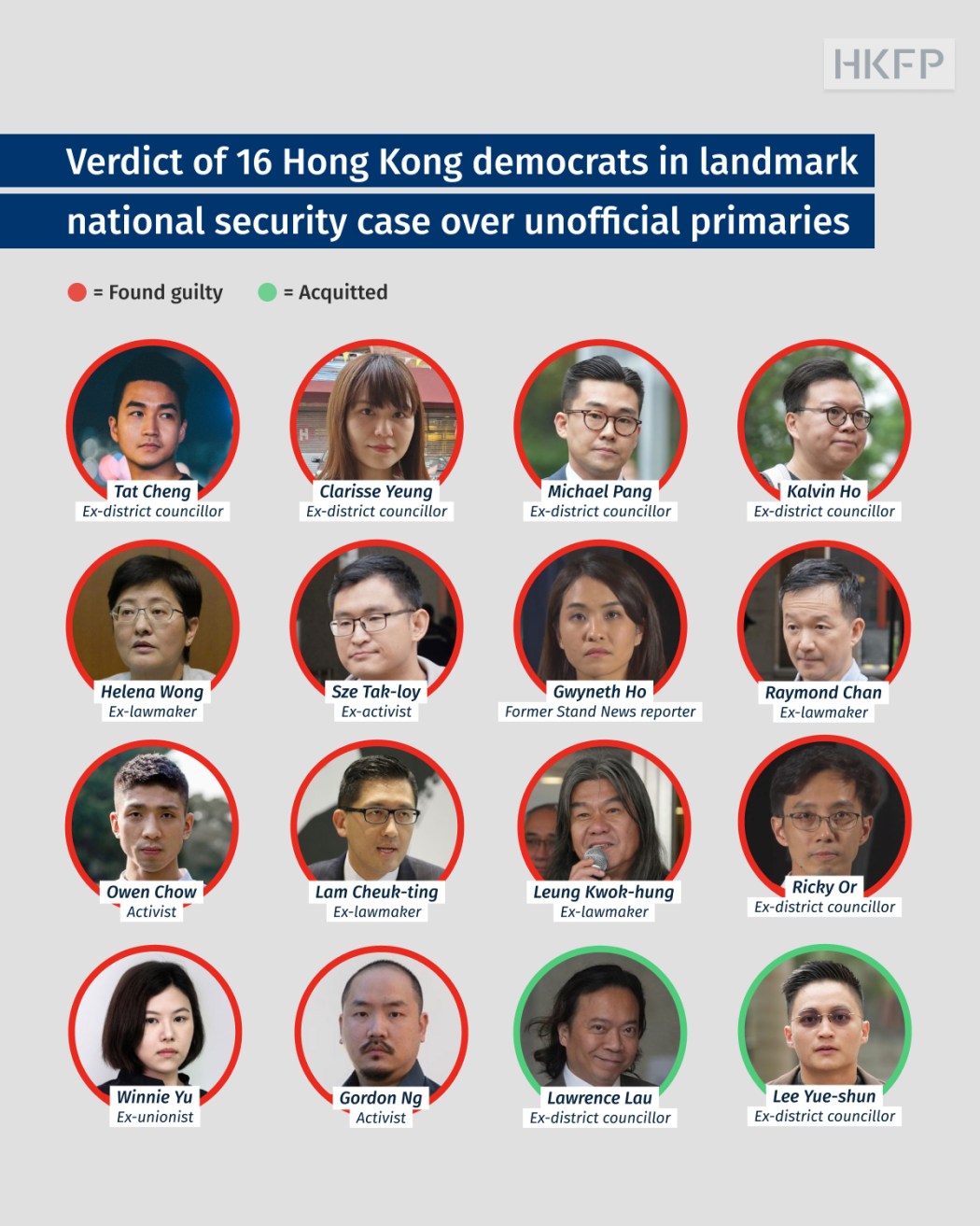
They were among 47 arrested under the Beijing-imposed security law in January 2021 over their roles in unofficial primaries held in an attempt to understand which candidates to put forward to gain a controlling majority in the upcoming Legislative Council (LegCo) election.
They stood accused of planning to use legislative powers to indiscriminately veto bills – such as the budget – ultimately forcing the chief executive’s resignation and a government shutdown. Most have been detained since being taken into police custody on February 28, 2021, ahead of a marathon bail hearing.
First acquittals under national security law
Lawrence Lau and Lee Yue-shun were acquitted – becoming the first two people tried under the Beijing-imposed security law to be cleared of their charges. While they were allowed to leave the dock, director of public prosecutions Maggie Yang invoked a new legal rule requesting that the bail conditions both were subject to ahead of the verdict hearing be extended pending a possible appeal against their acquittal from the prosecution.
Neither Lau nor Lee’s representative Steven Kwan said they opposed the keeping of the bail conditions until the afternoon hearing. Kwan, however, added that he may make a related application after reviewing the verdict.
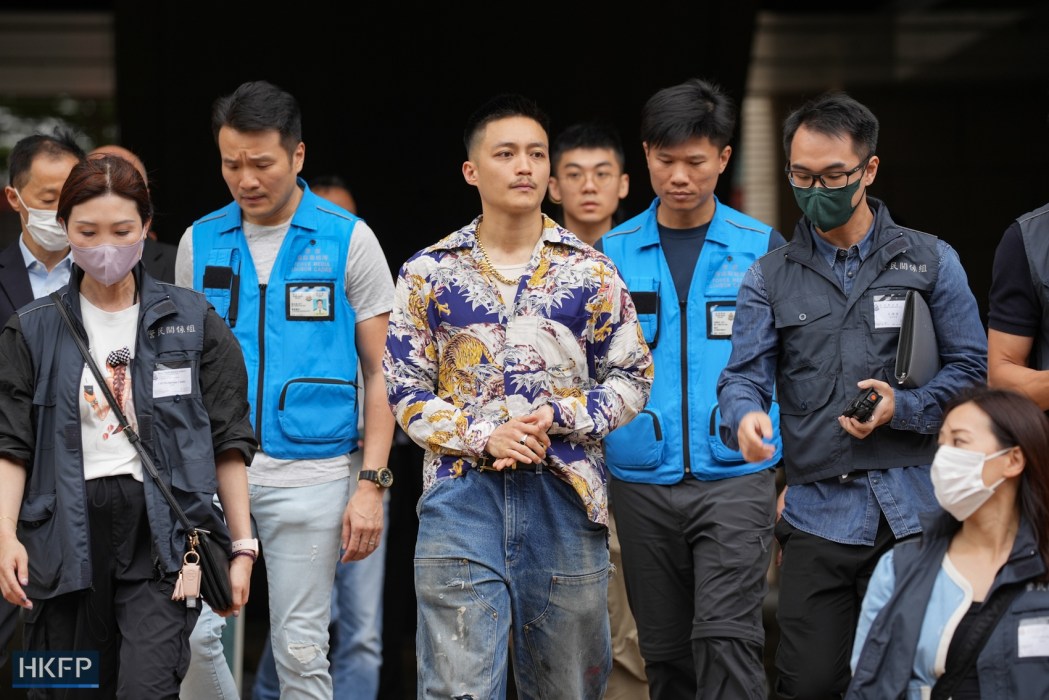
Those found guilty were taken immediately into custody. They face three tiers of penalty depending on their level of participation in the offence. The maximum sentence is life in prison, while the minimum sentence is “fixed term imprisonment of not more than three years, short-term detention or restriction.”
A 319-page court document was posted online after the verdicts were handed down, explaining the judges’ reasons for their rulings, in which the judges rebutted a number of arguments presented by the defence.
The defence had argued that the phrasing of Article 22 of the national security law – which outlines the subversion offence – suggests that any “other unlawful means” used to subvert state power must involve the use of force or the threat of force. This was dismissed by the judges as being too “narrow,” saying that limiting the scope this way would be “absurd and illogical.”
The defence had also argued that the prosecution should have to prove that the defendants knew at the time that their acts were unlawful. During the trial, some of the defendants said they believed that their plan of vetoing the budget and forcing the chief executive to step down did not breach the national security law.
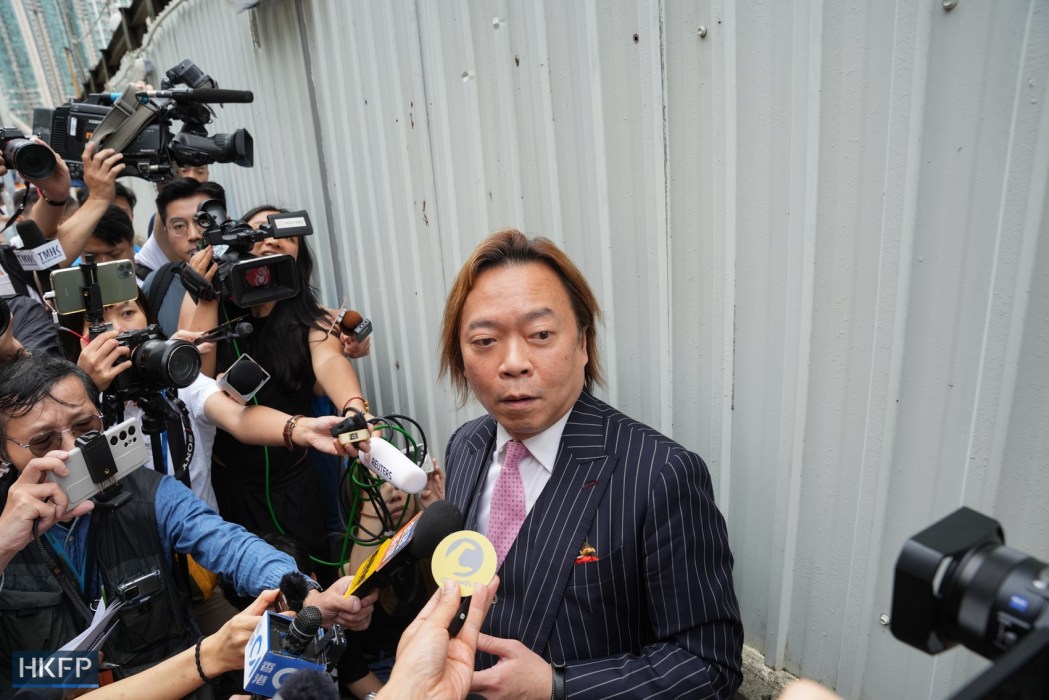
The judges, however, said the prosecution were not required to prove this. Whether a defendant “acted with a mistaken belief that his or her means was lawful” was “irrelevant,” the judges wrote.
Speaking to the press outside the court building after learning of his acquittal, Lau expressed his gratitude to all those who had “shown their big hearts and concerns,” before adding that “there are still other defendants in this case warranting our concern and even love.”
Lau, a barrister who represented himself during trial, continued: “if there is any star in this case, this judgement should be the star. It [shows] the jurisprudence, reasoning, logic, perspectives of our judges. Please study it. It is more important than any single individual of this case. It is part of our rule of law.”
In their reasons for acquitting Lau, the judges said the barrister had never advocated vetoing the budget in his election campaign. Similarly, Lau’s assistant, who had liaised with the primary organisers on his behalf, never directly raised issues such as vetoing the budget or pushing for protesters’ five demands to be met, the judges wrote.
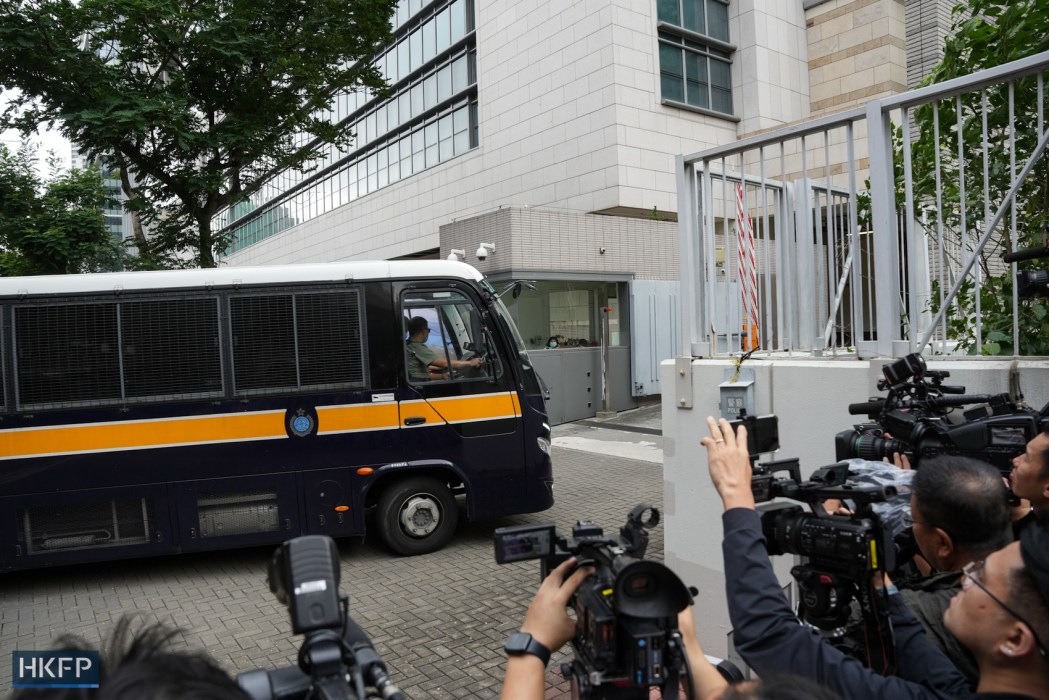
During the trial, the prosecution cited three main documents to argue their case against the democrats, including an online declaration known as “Resolute Resistance, Inked Without Regret,” which was signed by 33 defendants who ran in the primary election.
Signatories endorsed the five demands made by Hong Kong protesters in 2019, and said they intended to use the power conferred to lawmakers under the Basic Law – including vetoing the budget – to compel the chief executive to respond to those demands. Among the demands were withdrawing charges against all protesters, and holding parties accountable for alleged police brutality.
The judges also referred to Lau’s testimony, in which he said he did not know why his name was on the “Inked Without Regret” declaration. Responding to the prosecution’s statement that Lau had given “no believable explanation” for why his name appeared on the document, the judges said if he did not know why, it “would follow” that he could not explain.
Lee addressed the media after being found not guilty. “Thank you everyone for the support over the years,” he said in Cantonese. “We have seen and felt everyone’s love.”
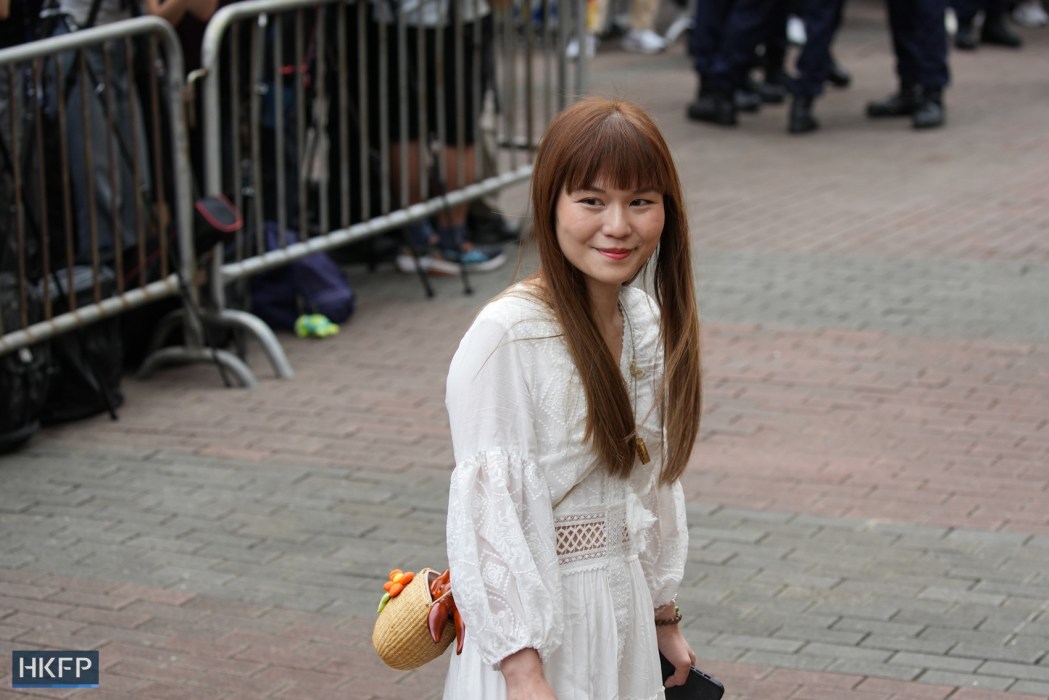
He added that he could not comment on the case as the Department of Justice may still appeal his acquittal. “I can only say my mood is calm. Thanks for all the care. I wish to go yum cha with my family now, because I haven’t seen them yet.”
In acquitting Lee, the judges described the former district councillor as a “late comer” to the Civic Party’s primary election campaign. As a result, he had not taken part in a meeting during which then-party leader Alvin Yeung was said to have pledged to exercise the power to veto the budget indiscriminately.
The court ruled that the prosecution had also failed to prove that Lee was part of the Civic Party’s endorsement of the Inked Without Regret declaration.
“[W]e cannot be sure that [Lee] was a party to the scheme. Similarly, we cannot be sure that he had the intention to subvert the State power during the material period of time,” the judges concluded.
Proceedings ended a little after 3 pm on Thursday, with mitigation submissions set to begin on June 25.
Hong Kong 47
The trial of the Hong Kong 47, named for the number of defendants charged in the proceedings, is the city’s largest national security case to date.
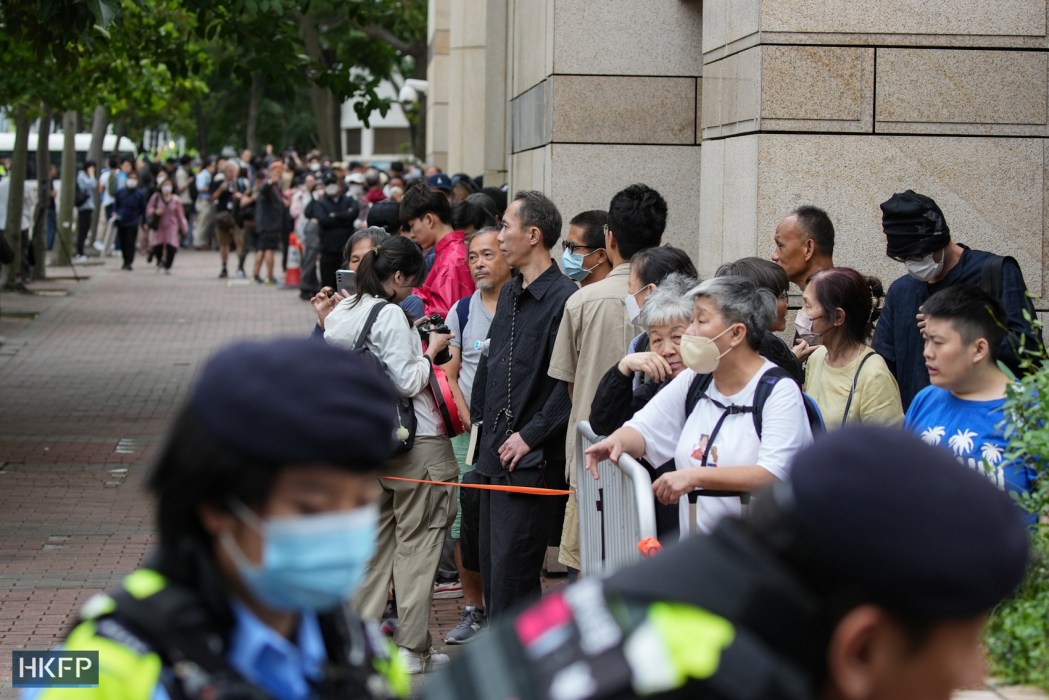
According to the prosecution’s case, the democrats held election primaries in July 2020 in an attempt to determine the candidates best placed to help them win a controlling majority in the upcoming Legislative Council election.
Prosecutors alleged that the democrats saw a legislative majority as a “lethal constitutional weapon“ and intended to abuse their legislative powers to indiscriminately veto bills, forcing the chief executive’s resignation and a government shutdown.
During the 118-day trial that began in February last year, the prosecution argued the 16 defendants’ involvement in the alleged conspiracy.
To support their claims, prosecutors relied on the testimonies of four defendants who became witnessed for the prosecution. They were primary election organiser Au Nok-hin, ex-district councillors Andrew Chiu and Ben Chung, and businessman Mike Lam.
The four were among the 31 defendants who pleaded guilty and are awaiting sentencing. The defendants include activist Joshua Wong as well as ex-lawmakers Claudia Mo, Eddie Chu and Wu Chi-wai.
Beijing inserted national security legislation directly into Hong Kong’s mini-constitution in June 2020 following a year of pro-democracy protests and unrest. It criminalised subversion, secession, collusion with foreign forces and terrorist acts – broadly defined to include disruption to transport and other infrastructure. The move gave police sweeping new powers and led to hundreds of arrests amid new legal precedents, while dozens of civil society groups disappeared. The authorities say it restored stability and peace to the city, rejecting criticism from trade partners, the UN and NGOs.
Support HKFP | Policies & Ethics | Error/typo? | Contact Us | Newsletter | Transparency & Annual Report | Apps
Help safeguard press freedom & keep HKFP free for all readers by supporting our team


